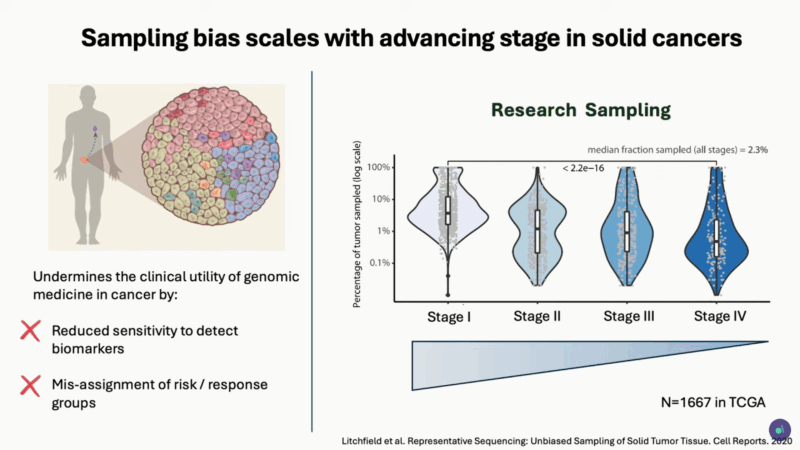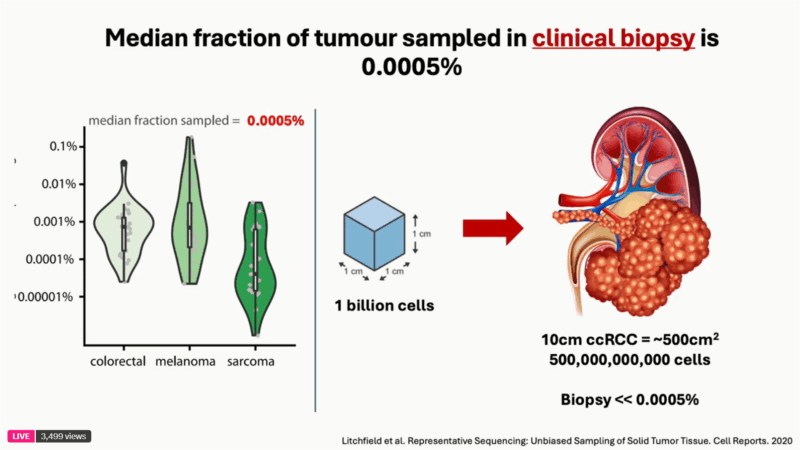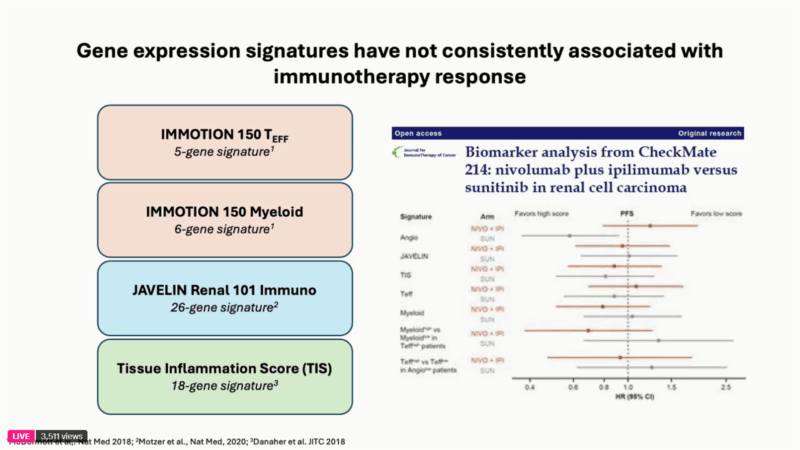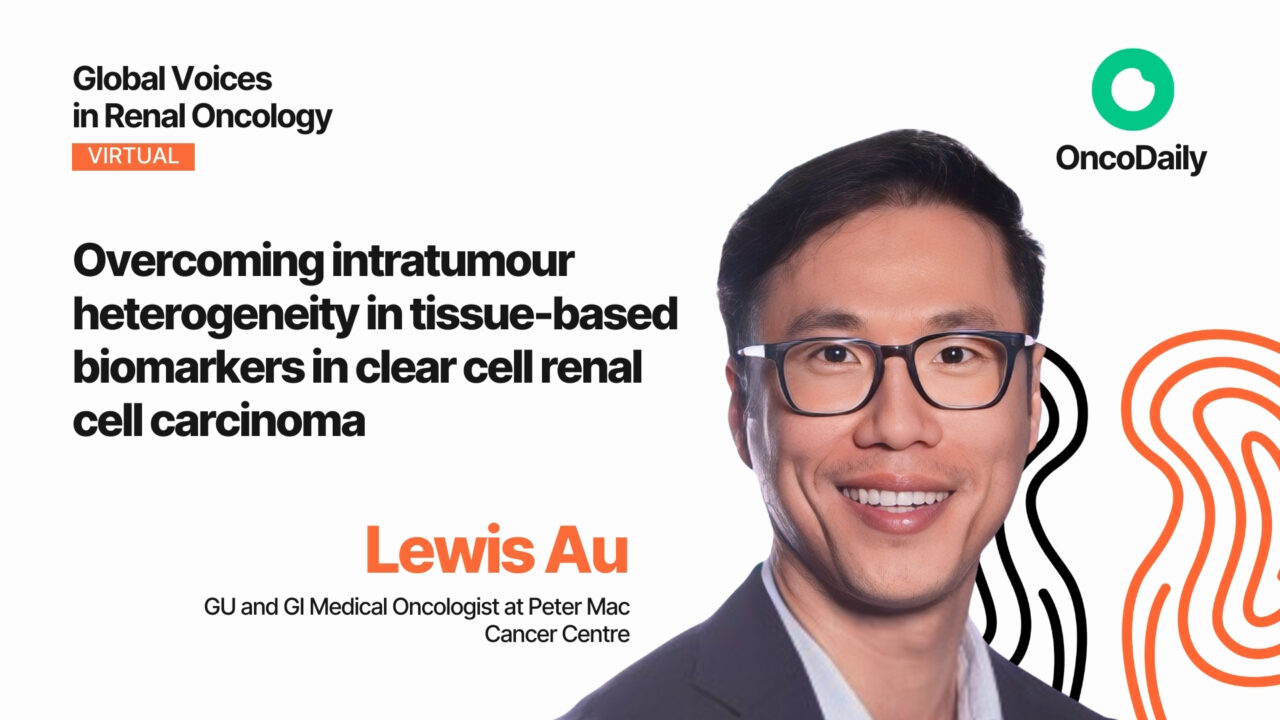At Global Voices in Renal Oncology (VIRO) 2025, organized by OncoDaily, Dr. Lewis Au, GU and GI Medical Oncologist at Peter Mac Cancer Centre delivered a talk on “Overcoming intratumour heterogeneity in tissue-based biomarkers in clear cell renal cell carcinoma”.
At the forefront of genomic medicine in cancer is the challenge of sampling bias and intratumoral heterogeneity, especially in renal cell carcinoma (RCC).
Key Insights from Lewis Au’s Speech:
- Sampling Bias Impact: Depending on where the biopsy needle lands, you may get a different readout, leading to misassigned risks or inaccurate response categories.
- Clinical & Research Differences: In clinical biopsies, less than 0.0005% of the tumor volume is typically sampled, which is a massive underrepresentation of the tumor’s total burden, particularly in advanced stages like stage 4 RCC.
- Transcriptional Heterogeneity: RCC tumors show both CCA and CCB prognostic signatures in nearly all cases. This means biopsy sampling may yield inconsistent results depending on where the tissue is taken, making biomarkers unreliable.

What This Means for Kidney Cancer Treatment:
- The Size of the Problem: To put the scale of under-sampling into perspective, consider this: one cubic centimeter of tumor typically contains 1 billion cells. A 10 cm tumor would therefore represent around 500 cubic centimeters or 500 billion cells. Yet, when only 0.0005% of the tumor is sampled, we are essentially looking at a tiny fraction of the total tumor, which presents a monumental challenge for reliable biomarker analysis.

- Hope Amid the Challenges: Despite these significant challenges, there have been multiple prospective studies that have derived gene expression signatures predicting immunotherapy outcomes in clinical trials. Notable studies such as EMOTION 150 and JAVELIN have shown the potential of biomarker signatures to predict responses to immunotherapy. This gives us hope that, even with the issue of under-sampling, gene expression signatures still have significant clinical utility in predicting treatment outcomes.

However, hope is not lost! Despite these challenges, gene expression signatures from studies like EMOTION 150 and JAVELIN have successfully predicted immunotherapy outcomes, proving that biomarkers can still play a crucial role.
The Takeaway: While undersampling in clinical biopsies presents significant challenges, ongoing research continues to shed light on how we can improve biomarker utility in the fight against kidney cancer.
Read Other Highlights from VIRO 2025.
Join us in the conversation.


